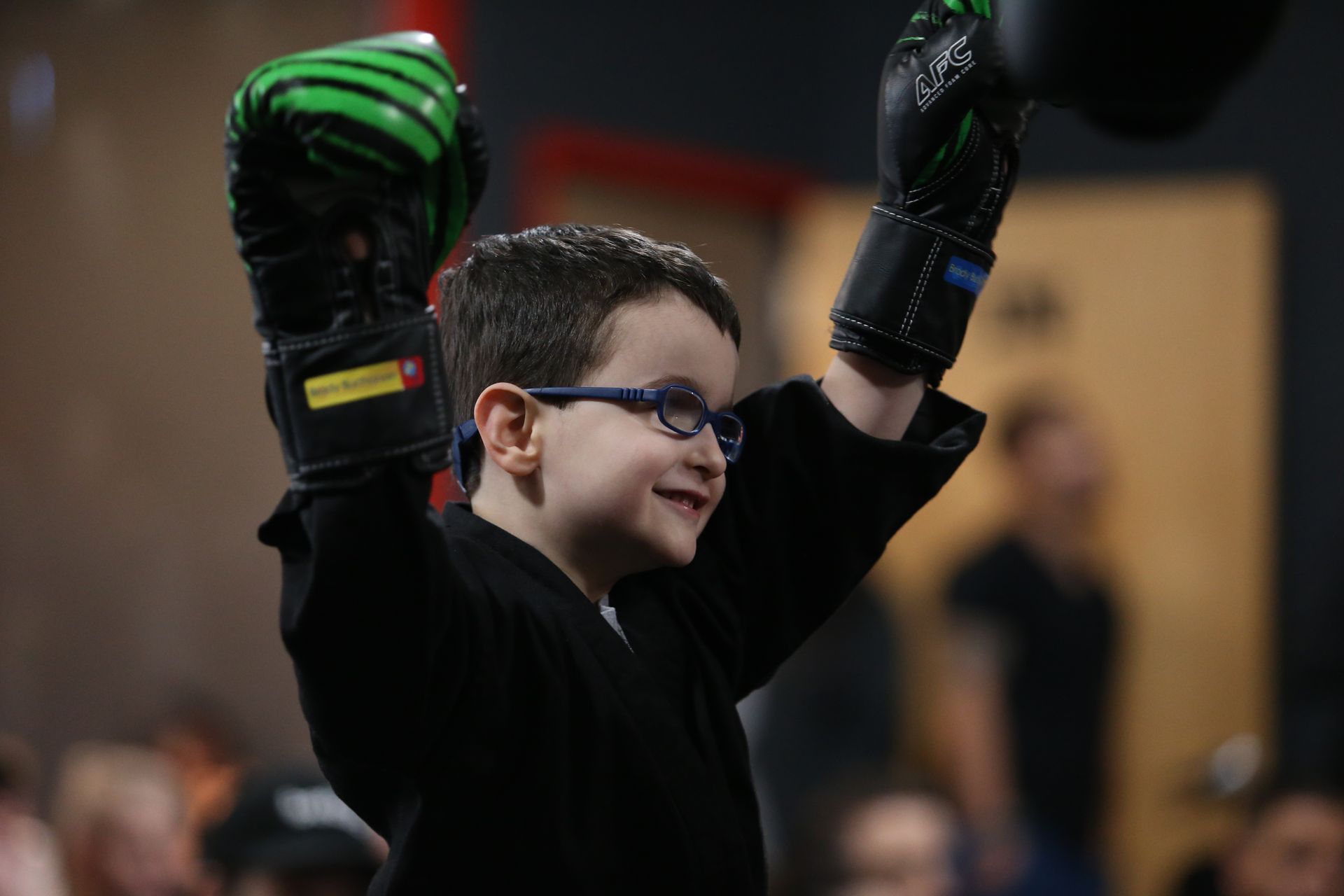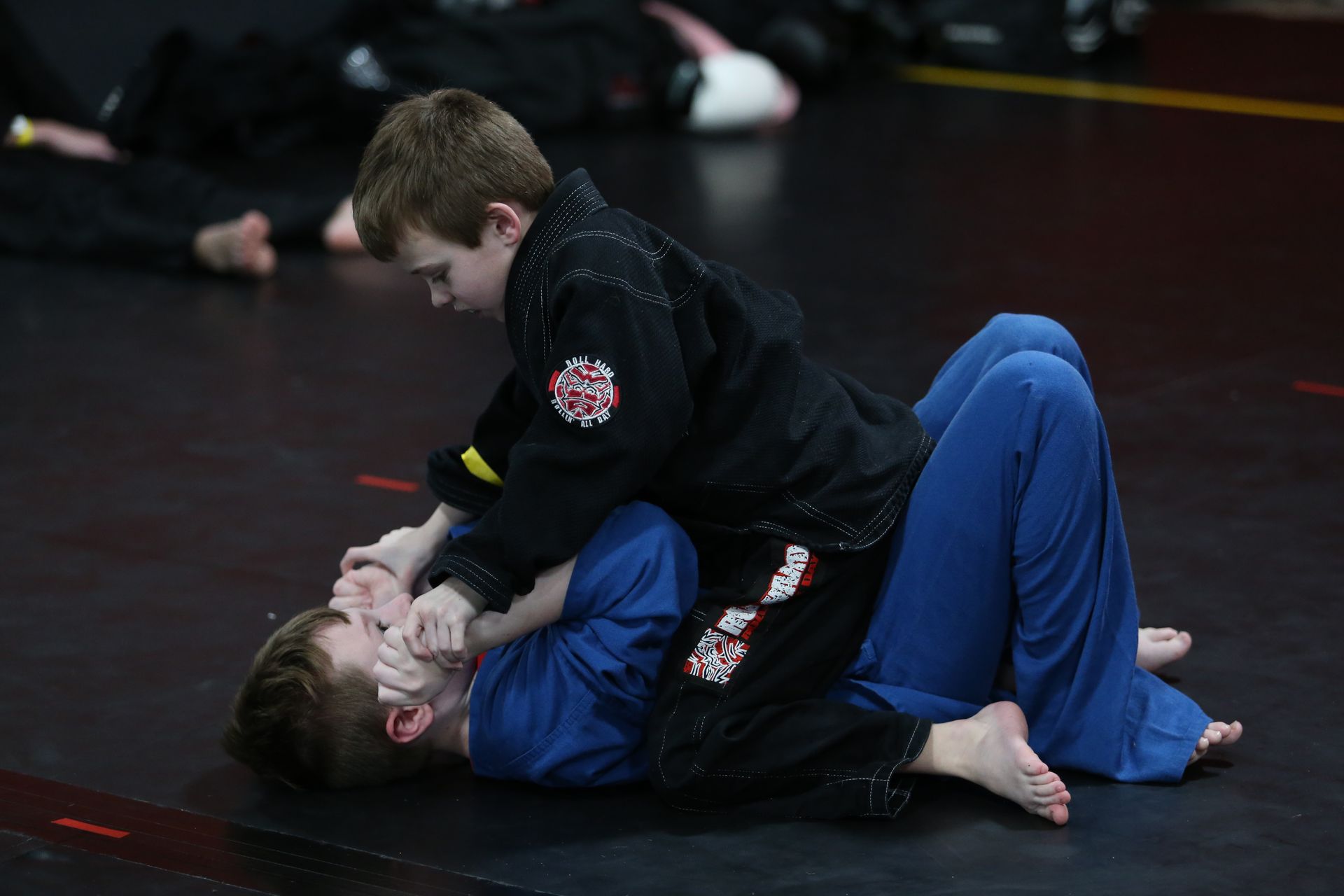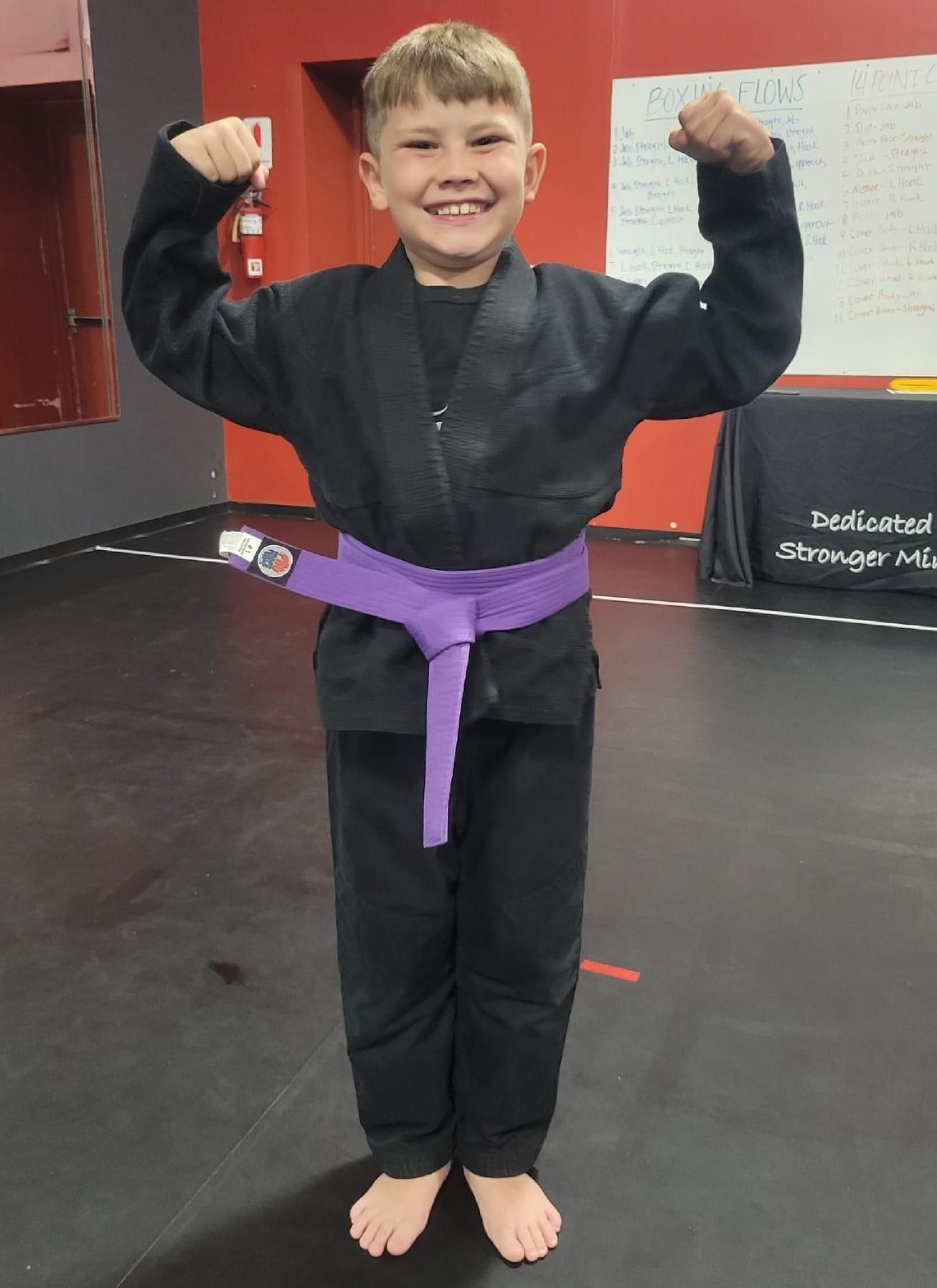By Aka Landschoot
•
January 24, 2024
Do you want your child to be successful and happy in life? Do you want them to overcome any obstacle and achieve any goal they set for themselves? Do you want them to be confident, resilient, and adaptable in any situation? If you answered yes to any of these questions, then you need to help your child develop mental toughness. What is mental toughness and why is it important for kids? Mental toughness is the ability to resist, manage, and overcome doubts, worries, and concerns that prevent you from succeeding or excelling at a task or towards an objective or a performance outcome that you set out to achieve. Mental toughness is important for kids, especially in today's competitive and uncertain world. Kids who are mentally tough are more likely to: • Have a positive and optimistic attitude towards life and themselves. • Handle stress, pressure, and challenges better and bounce back from failures and setbacks faster. • Solve problems and make decisions effectively and creatively. • Learn from feedback and mistakes and improve their skills and performance. • Achieve their academic, personal, and professional goals and aspirations. As a parent, a marketer, and a Brazilian Jiu Jitsu world champion, I have learned a lot about mental toughness and how to cultivate it in myself and others. In this article, I will share with you 7 proven strategies to boost your child's mental toughness in any situation, based on my experience and research. Strategy 1: Model mental toughness yourself The first and most important strategy to boost your child's mental toughness is to model it yourself. Your child learns from your behavior and attitude, and they will follow your example more than your words. If you want your child to be mentally tough, you need to show them how you cope with challenges, setbacks, and failures. You need to demonstrate how you use your mental skills and strategies to overcome any obstacle and achieve any goal. Here are some tips on how to model mental toughness yourself: • Be honest about your emotions and thoughts, but don't let them overwhelm you or stop you from taking action. For example, you can say, "I'm feeling nervous about this presentation, but I'm going to do my best and focus on the positive feedback I've received before." • Focus on the things you can control, and let go of the things you can't. For example, you can say, "I can't control the weather, but I can control how I dress and how I plan my day." • Seek feedback and learn from your mistakes, rather than avoiding them or making excuses. For example, you can say, "I didn't do well on this test, but I'm going to review the material and ask for help if I need it." • Celebrate your achievements and progress, no matter how small. For example, you can say, "I'm proud of myself for finishing this project on time and within the budget. I learned a lot and improved my skills." • Challenge yourself to step out of your comfort zone and try new things. For example, you can say, "I've always wanted to learn how to play the guitar, so I'm going to sign up for a class and practice every day." Strategy 2: Teach your child the growth mindset The second strategy to boost your child's mental toughness is to teach them the growth mindset. The growth mindset is the belief that your abilities and talents can be developed through effort, learning, and practice. The growth mindset fosters mental toughness by helping your child to see challenges as opportunities to grow, rather than threats to avoid. Kids who have the growth mindset are more likely to: • Believe in their potential and capacity to improve and succeed. • Embrace learning and curiosity and seek new experiences and knowledge. • Persist and persevere in the face of difficulties and obstacles. • View feedback and criticism as constructive and helpful, rather than personal and hurtful. Here are some tips on how to teach your child the growth mindset: • Praise your child for their effort, process, and strategies, rather than their outcomes or intelligence. For example, you can say, "You worked really hard on this project, and you used a lot of creativity and logic. I'm impressed by how you solved that problem." • Encourage your child to embrace mistakes and failures as part of the learning process, rather than signs of weakness or incompetence. For example, you can say, "It's okay to make mistakes, as long as you learn from them and try again. Mistakes are how you grow and improve." • Help your child to set realistic and specific goals, and to track their progress and improvement. For example, you can say, "Your goal is to improve your math skills by the end of the semester. Let's make a plan on how you can achieve that, and let's review your progress every week." • Expose your child to inspiring stories and role models of people who achieved success through hard work and perseverance. For example, you can say, "Did you know that Albert Einstein was not a good student in school, but he became one of the greatest scientists of all time? He never gave up on his curiosity and passion for learning." Strategy 3: Introduce your child to Brazilian Jiu Jitsu The third strategy to boost your child's mental toughness is to introduce them to Brazilian Jiu Jitsu. Brazilian Jiu Jitsu is a martial art and a sport that involves grappling and submission techniques. It is a game of strategy, technique, and leverage, rather than brute force or aggression. Brazilian Jiu Jitsu can boost your child's mental toughness by teaching them how to: • Deal with physical and mental pressure, stress, and discomfort in a safe and controlled environment. For example, they will learn how to breathe, relax, and escape from different positions and situations. • Apply critical thinking and problem-solving skills to overcome opponents and situations. For example, they will learn how to analyze, adapt, and execute different moves and strategies. • Develop self-discipline, respect, and humility through training and competing with others. For example, they will learn how to follow rules, listen to instructions, and accept defeat and victory gracefully. • Build confidence, resilience, and self-defense skills through learning and mastering new moves and skills. For example, they will learn how to defend themselves, assert themselves, and overcome their fears and doubts. I can personally attest to the benefits of Brazilian Jiu Jitsu for mental toughness, as I have been practicing it for over 10 years and have won several tournaments and championships. It has helped me to become more calm, focused, and confident in all aspects of my life. Strategy 4: Challenge your child with mental toughness games and exercises The fourth strategy to boost your child's mental toughness is to challenge them with mental toughness games and exercises. Mental toughness games and exercises are fun and effective ways to train your child's mental skills, such as focus, memory, concentration, and creativity. Mental toughness games and exercises can boost your child's mental toughness by helping them to: • Strengthen their mental muscles and improve their mental performance and endurance. • Enhance their attention span and reduce their distractions and boredom. • Stimulate their imagination and innovation and expand their horizons and perspectives. • Sharpen their logic and reasoning and improve their intelligence and wisdom. Strategy 5: Encourage your child to practice mindfulness and meditation The fifth strategy to boost your child's mental toughness is to encourage them to practice mindfulness and meditation. Mindfulness and meditation are practices that involve paying attention to the present moment, without judgment or reaction. Mindfulness and meditation can boost your child's mental toughness by helping them to: • Reduce their stress, anxiety, and negative emotions and increase their calmness, happiness, and positive emotions. • Improve their self-awareness and self-regulation and manage their impulses and reactions. • Enhance their focus and concentration and filter out irrelevant and distracting information. • Cultivate their compassion and empathy and understand their own and others' feelings and needs. Here are some tips on how to encourage your child to practice mindfulness and meditation: • Introduce your child to the basic concepts and benefits of mindfulness and meditation, using simple and age-appropriate language and examples. For example, you can say, "Mindfulness is like a superpower that helps you to pay attention to what is happening right now, without getting upset or distracted. Meditation is like a workout for your mind that helps you to train your attention and calm your emotions." • Make mindfulness and meditation fun and engaging, using games, stories, and activities. For example, you can play "I spy" with your child, and ask them to notice different things in their surroundings. You can also read them stories that teach them about mindfulness and meditation, such as "Peaceful Piggy Meditation" by Kerry Lee MacLean or "Mindful Monkey, Happy Panda" by Lauren Alderfer. • Practice mindfulness and meditation with your child, and make it a part of your daily routine. For example, you can practice mindful breathing with your child, and ask them to focus on their breath and how it feels in their body. You can also practice meditation with your child, and use apps or videos that guide you through different meditations, such as "Headspace for Kids" or "Cosmic Kids Zen Den". • Praise your child for their mindfulness and meditation efforts, and acknowledge their progress and improvement. For example, you can say, "You did a great job of being mindful today. You noticed how you were feeling and what you were thinking, and you didn't let them bother you. You also meditated for 10 minutes, and you looked very relaxed and happy afterwards." Strategy 6: Expose your child to different cultures and perspectives The sixth strategy to boost your child's mental toughness is to expose them to different cultures and perspectives. Different cultures and perspectives are ways of seeing, thinking, and living that are different from your own or the dominant ones in your society. Exposing your child to different cultures and perspectives can boost your child's mental toughness by helping them to: • Broaden their worldview and knowledge and appreciate the diversity and richness of human experience. • Develop their critical thinking and open-mindedness and question their own and others' assumptions and biases. • Enhance their creativity and flexibility and generate new and original ideas and solutions. • Foster their tolerance and respect and understand and appreciate different values and beliefs. Here are some tips on how to expose your child to different cultures and perspectives: • Travel with your child to different places, and explore their history, culture, and people. For example, you can visit museums, landmarks, and local markets, and learn about their significance and stories. You can also interact with the locals, and learn about their customs, traditions, and languages. • Read books and watch movies with your child that feature different cultures and perspectives. For example, you can read books such as "The Name Jar" by Yangsook Choi or "The Day of the Dead" by Tony Johnston, and watch movies such as "Coco" or "Moana", and discuss their themes and messages. • Encourage your child to participate in cultural events and activities, and celebrate different festivals and holidays. For example, you can attend a Chinese New Year parade, a Diwali celebration, or a Hanukkah party, and learn about their origins and meanings. You can also join a cultural club or a language class, and learn new skills and make new friends. • Challenge your child to think from different perspectives, and consider different opinions and viewpoints. For example, you can ask your child to imagine how they would feel or act if they were in someone else's shoes, or to debate a topic from both sides, and explain their reasoning and evidence. Strategy 7: Support your child's passions and interests The seventh and final strategy to boost your child's mental toughness is to support your child's passions and interests. Passions and interests are things that your child loves to do, learn, or explore, and that make them happy and fulfilled. Supporting your child's passions and interests can boost your child's mental toughness by helping them to: • Discover their strengths and talents and develop their potential and excellence. • Pursue their goals and dreams and overcome any obstacles and challenges. • Express their individuality and identity and build their confidence and self-esteem. • Find their purpose and meaning and contribute to their community and society. Here are some tips on how to support your child's passions and interests: • Listen to your child and observe their behavior, and identify their passions and interests. For example, you can ask your child what they like to do, learn, or explore, and why. You can also watch what they do in their free time, and what makes them excited and engaged. • Provide your child with resources and opportunities, and help them to pursue their passions and interests. For example, you can buy them books, tools, or equipment, and enroll them in classes, courses, or clubs, that are related to their passions and interests. You can also take them to events, exhibitions, or competitions, that showcase their passions and interests. • Encourage your child to challenge themselves and improve themselves, and help them to overcome any difficulties and setbacks. For example, you can help your child to set realistic and specific goals, and to track their progress and improvement. You can also help your child to cope with stress, frustration, and failure, and to learn from feedback and mistakes. • Celebrate your child's achievements and efforts, and acknowledge their passions and interests. For example, you can praise your child for their hard work, dedication, and improvement, and reward them with recognition, appreciation, or incentives. You can also show interest and enthusiasm in their passions and interests, and join them in their activities or share your own. Conclusion Mental toughness is a vital skill for your child's success and happiness in life. It is not something that they are born with, but something that they can learn and develop. As a parent, you can play a key role in boosting your child's mental toughness, by using the 7 proven strategies that I have shared with you in this article. I hope you found this article helpful and informative. If you did, please share it with other parents who might benefit from it. And if you have any questions or comments, please leave them below. I would love to hear from you. Thank you for reading, and I wish you and your child all the best




